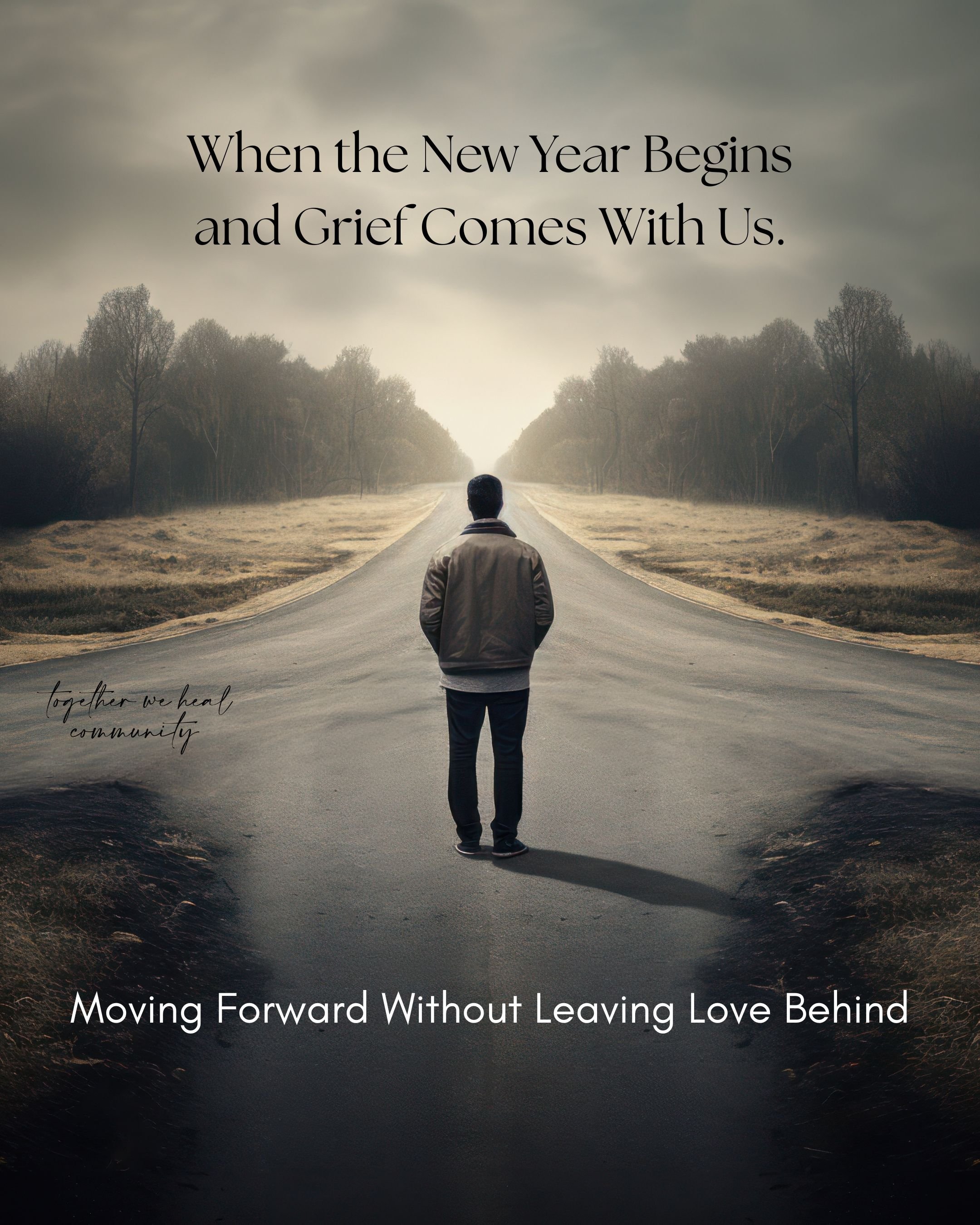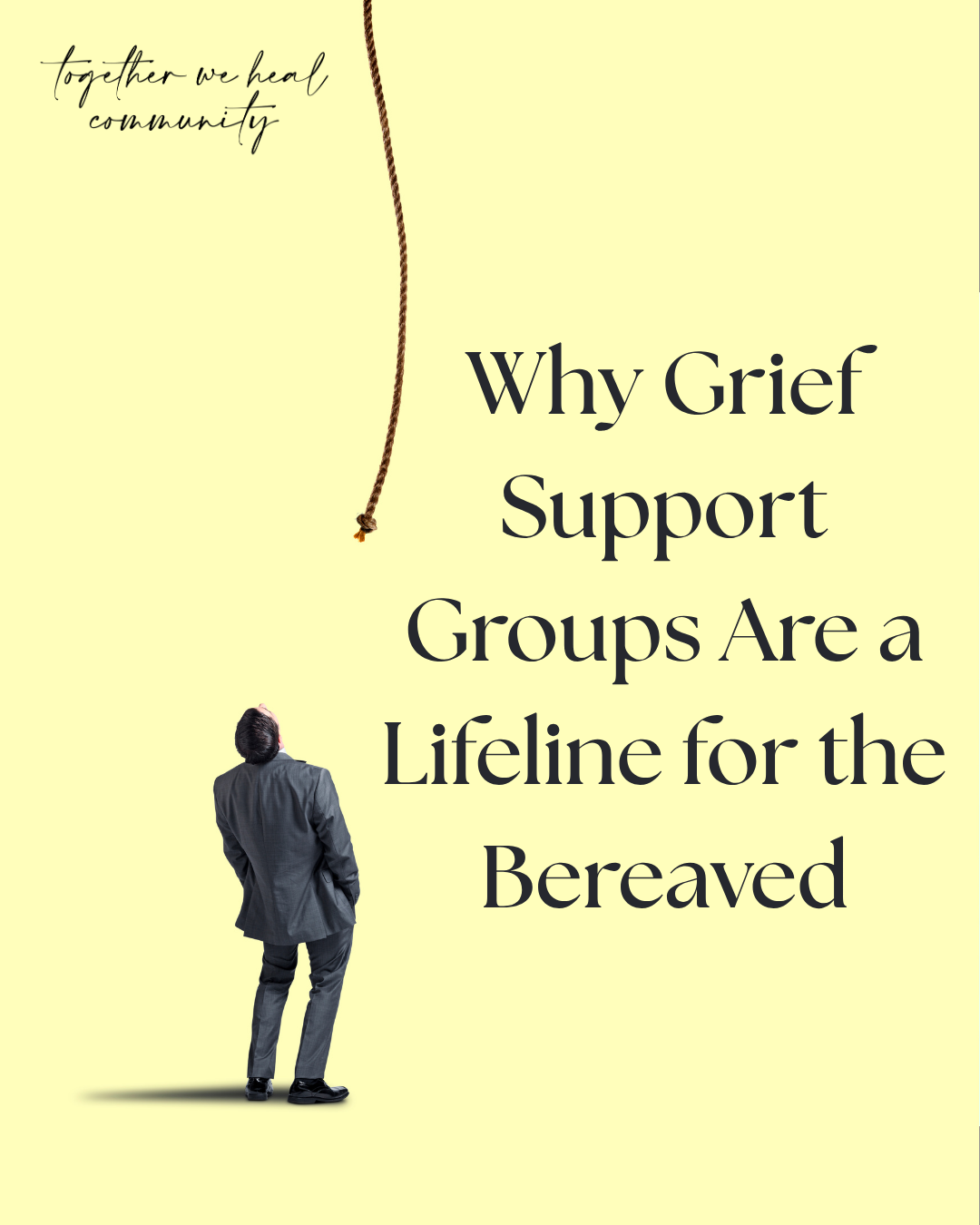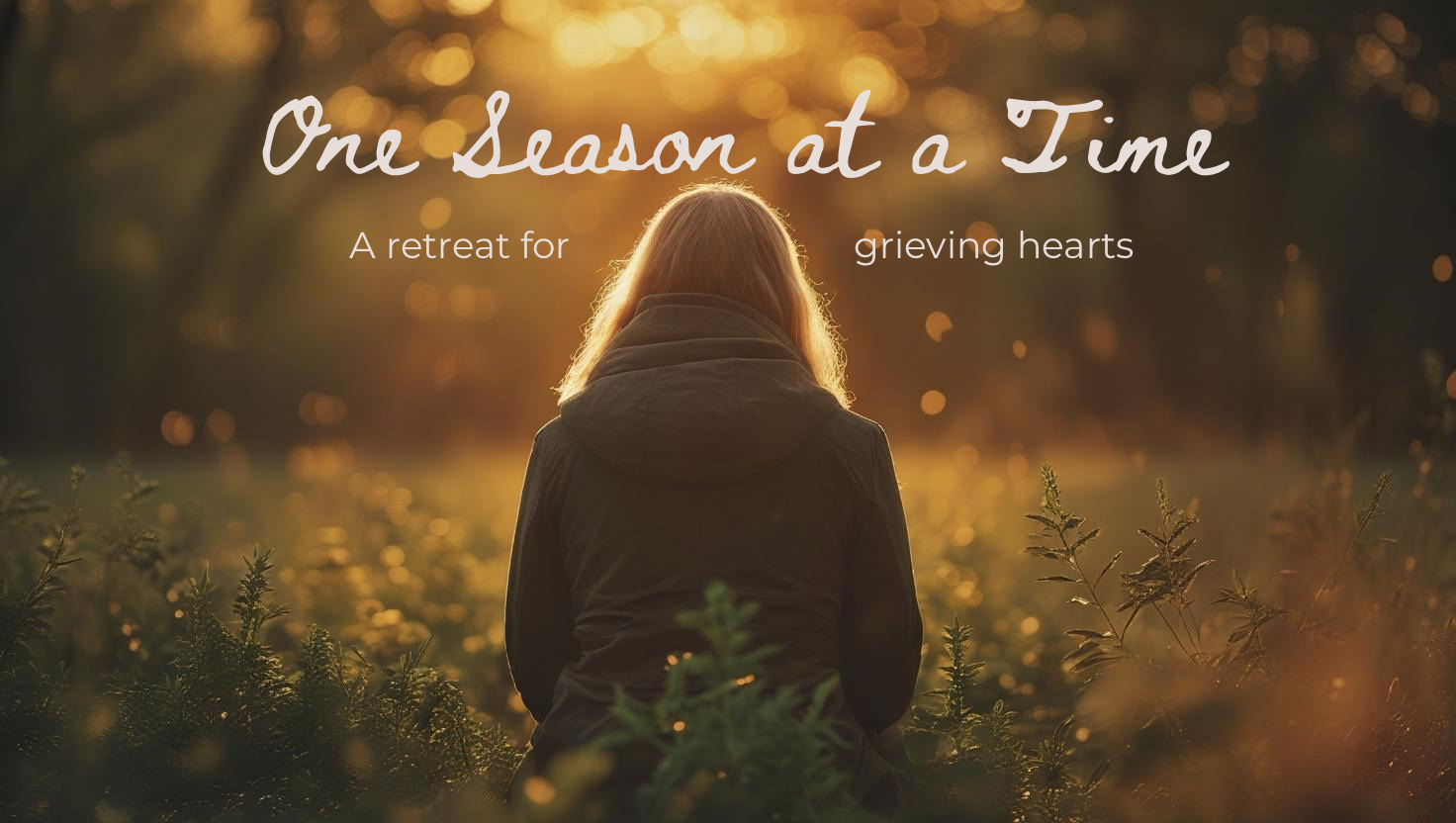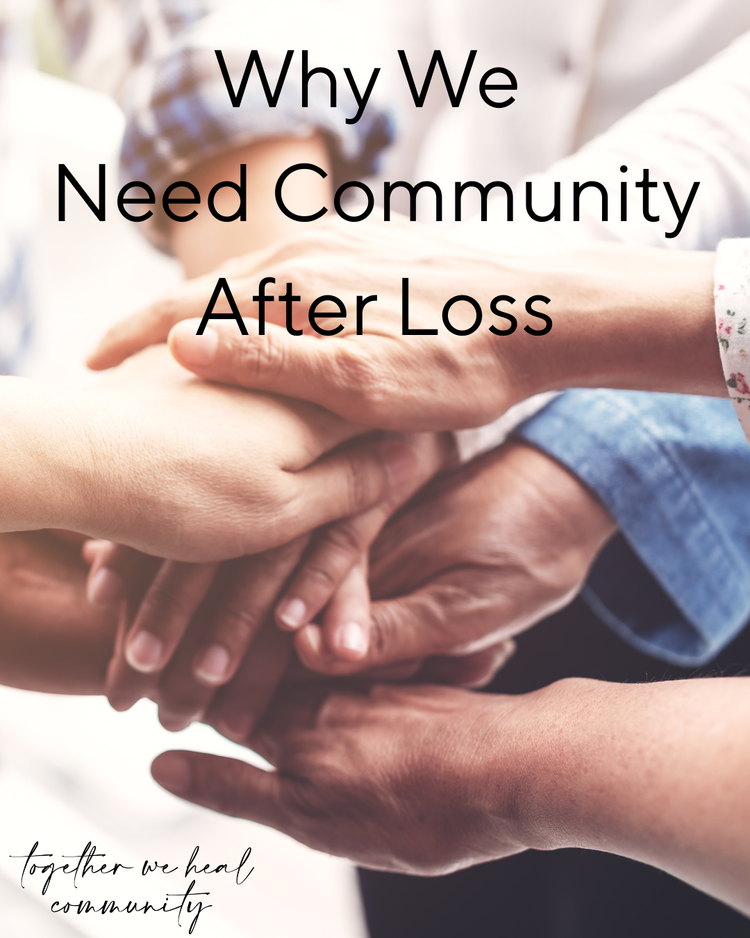The beginning of each new year often arrives with an unspoken expectation: fresh starts, clean slates, renewed energy. To a griever, this idea seems like a dagger to the heart; a reminder that your world will never be the same. The start of a new year without your person seems cruel and wrong. The loss does not disappear at 12:01 January, 1st.
Protecting Your Peace With Holiday Boundaries
Navigating grief during the holiday season is especially exhausing. This time of year is full of expectations-attending gatherings, holiday cheer to spread and traditions to uphold. We often ignore what our bodies are trying to tell us and force ourselves to do activities before we are ready. It’s ok to get out in the world and try new things, but we need to be mindful of pushing too fast and too hard.
Supporting Your Nervous System This Season ~ Simple Ways to Bring Calm & Balance To Your Body
As we head into the holiday season, it important to notice our body’s physical and mental stress, fatigue and overwhelm. Often as we approach big holidays, our body lets us know what’s coming…but we can also find opportunities to nurture ourselves with the slowing/changing patterns around us…in our weather and light.
At its core, the nervous system is your body’s communication network. It constantly sends and receives signals to keep everything in your body from running smoothly. The central nervous system (the brain and spinal cord) acts as the control center, processing information and making decisions.
The nervous system is designed to enable you to shift smoothly between states of alertness and relaxation. But modern life often overwhelms this system. Chronic stress, grief, past trauma, and even ongoing health challenges can trap the body in survival mode. Instead of moving fluidly between “fight or flight” and “rest and digest,” the system can get stuck, leaving you wired, exhausted, or both. Being stuck in a sympathetic state can have real physiological effects (physical symptoms), such as high blood pressure, metabolic issues, or stress and dysfunction of other organs like kidneys.
When this happens, symptoms show up not only in your mind but across the whole body: sleep issues like insomnia, gut problems like IBS, brain fog, anxiety, and a heightened sensitivity to stress. Over time, constant activation wears down the body’s resilience, making recovery harder and overall health decline.
When the nervous system gets stuck in patterns of stress, it can feel like you’re in an endless cycle of overwhelm. You can train your brain to break this cycle.
Try these methods on your own. I’ve added some explanations for some of those that you might be unfamiliar with.
~drink something warm
~watch a funny movie
~get adequate sleep
~stop the scroll
~try a new craft
~keep a gratitude journal (Try noticing 3 things every day)
~prioritize nourishing foods (It’s soup season!)
~cuddle with a pet…or someone else’s
~go for a walk
~watch the sunset/sunrise
~gardening
~read a good book
~have coffee/tea with friends
~get morning sunlight (30 mins, especially in the morning)
~daily meditation/prayer (try this from my friend Jill Weston)
~plan a fall outing (think apple picking or leaf collecting)
~experiment with a grounding practice (take your shoes off and stand in the grass)
~turn off the news
~use amber lights at night
~hug someone
~chew gum
~yoga/stretching
~get a massage (Check out our resources page)
~sing/listen to music you love
~dance to your favorite songs
~lay down and put your feet up against a wall
~breathwork
A simple pattern to try is inhale for 4 counts, exhale for 6 counts. Here’s how:
Find a comfortable position and relax your body.
Inhale through your nose for 4 counts.
Exhale slowly through your mouth for 6 counts.
Repeat this cycle for 2–3 minutes.~vagus nerve exercises
Vagus nerve exercises helps shift you into the parasympathetic “rest and digest” state, and when practiced regularly, it can lower your baseline tension, making it easier to feel calm and recover from stress.
~humming
The vibration created when you hum helps stimulate the vagus nerve and promote relaxation. You can do this anywhere—quietly on a walk, while traveling, or at home.
~grounding:
Grounding is a quick and effective way to calm your nervous system by reconnecting with your body and the support beneath you. This simple practice can be as short or long as you’d like, whether you’re standing with your feet rooted into the floor, sitting back in a chair, or lying down on a yoga mat or bed.
The exercise begins with a few deep breaths and a sigh, then guides you to focus on the part of your body that is in contact with the surface beneath you. It might be your feet, your back, or your whole body if you’re lying down.
~tapping technique (lymphatic stimulation):
Lightly tap along the back and inside of each arm, move up toward the neck, then tap the center of the chest and under the arms near the rib cage. You might even notice a yawn, which is a natural sign that your nervous system is shifting toward relaxation!
~progressive muscle relaxation:
Tense a muscle group (for example, your shoulders or thighs) for 2–3 seconds.
Exhale with a sigh and release all tension from your muscles.
Move through areas of the body (shoulders, arms, stomach, legs), first creating tension and before releasing.
Each time, take a moment to notice the feeling of deeper relaxation, like stepping down a staircase.
In addition to these at-home practices, I highly recommend working with Karen Penfold of Full of Hope Yoga if you’re in the Sacramento area to help you in your nervous system regulation journey. She has worked with Together We Heal Community for many years and specializes in regulation the nervous system. She has a course on this exact topic HERE.
Sources:
Decluttering a Loved One’s Belongings After Their Passing
Losing a loved one is an emotional journey filled with grief, and one of the most challenging aspects is the process of letting go of their belongings. Each item holds memories and emotions, making the task a poignant and often bittersweet experience.
Regina Arnold states, “When you’re surrounded by your loved one's belongings, it can be easy to focus on the pain of their loss. However, if you choose to keep only the items that bring you joy, you can remember your loved one in positive and pleasant ways.
In this blog, we explore the steps involved in navigating this delicate process. We will be hosting “Decluttering Through Grief” with Arcelia Cervantes on March 16th to further dive into this subject and give you more help letting go of items.
Here are some tips to explore until then.
Give Yourself Time:
Grieving is a personal journey, and there is no universal timeline for healing. Allow yourself the time needed to process the loss before diving into the task of sorting through belongings. Rushing this process may intensify emotions and make it harder to let go.
Start Small:
Begin with less emotionally charged items. Sorting through less sentimental belongings first can help you ease into the process and gradually build the emotional strength needed for more challenging decisions.
Create a Support System:
Enlist the help of friends or family members who can provide emotional support and assistance. Having someone to share memories with and offer guidance can make the process less isolating.
Preserve Memories:
Find a way to keep the memories with a smaller footprint on your space. Consider creating a memory box or scrapbook with some of your loved one's belongings. Select items that hold special significance and can be cherished as keepsakes. This allows you to preserve memories while making space for the future.
Donate and Repurpose:
Find purpose in letting go by donating items to charitable organizations or repurposing them. Knowing that your loved one's belongings are contributing to a positive cause can bring a sense of fulfillment and honor their memory.
Seek Professional Help:
If the process becomes overwhelming, consider seeking guidance from a grief counselor or therapist. They can provide coping strategies and emotional support to help you navigate the complexities of letting go. We are excited to partner with Arcelia Cervantes in March to discuss strategies in decluttering.
Create New Rituals:
Establishing new rituals or traditions can help you transition into a life without your loved one. Whether it's creating a memorial space or starting a new family tradition, finding ways to honor their memory in a positive light can aid the healing process.
Know When to Let Go:
Understand that some items may hold too much emotional weight, and it's okay not to part with everything. Focus on what feels right for you, acknowledging that letting go is a gradual process, and it's okay to keep certain items close.
Celebrate Their Life:
Instead of solely mourning the loss, celebrate the life your loved one lived. Reflect on the positive impact they had on your life and the lives of others. Keeping their spirit alive in your heart and through their legacy can bring comfort during this challenging time.
Letting go of a loved one's belongings is a unique and deeply personal journey. By approaching the process with compassion for yourself and your emotions, you can navigate this bittersweet experience and find a path toward healing.
Why Grief Support Groups Are a Lifeline For the Bereaved
The one common denominator that connect all humans around the world is the loss of someone we love. Death is a natural part of life. The loss of a loved one is probably the hardest experience one can go through. Grievers feel isolation and abandonment from family and friends. They lose their appetite, their connections, their sense of joy and the meaning of the life they once knew.
That’s where grief support groups come in. These groups offer more than just a space to talk—they provide community, understanding, and healing in ways that are both meaningful and lasting.
Fall 2025 Wellness Retreat-One Season At A Time
Join us for a day of engaging breakout sessions led by our outstanding facilitators, delicious food from Cooking Dunn Right, and optional massages available for an additional fee. Through mindful practices, quiet reflection, and heart-centered conversation, you’ll be supported as you learn tools to care for your spirit, honor your grief, and move forward—one season at a time.
Where Grief Meets Bloom : How Flowers Touched our Hearts
The Loss of a Lifetime: Grieving Siblings Share Stories of Love, Loss and Hope
Why We Need Community After Loss
Calming Your Fears
Anxiety is one of the most commonly felt emotions after a loss, yet those experiencing anxiety often live those moments alone. Grief can make us feel as if we’ve lost our sense of safety and control. It’s natural and normal to feel anxious or worried about what might happen next or even to worry that we might lose someone else in the future.
Top 5 Reasons To Prioritize Yourself After Loss
Films That Navigate the Grief Experience
Movies centered on grief provide a unique and powerful way to explore the complex emotions of loss, healing, and resilience. By telling stories of characters navigating their own grief journeys, these types of films can offer comfort, validation, and insight to viewers who may be dealing with similar emotions.













